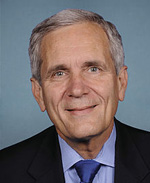 |
| Sylvia Burwell |
Back in January, a group of congressional representatives urged officials at the National Institutes of Health (NIH) and the U.S. Department of Health and Human Services (HHS) to take some "extraordinary action" to bring down rising drug prices. HHS has considered the request, and now it has its answer: No.
HHS Secretary Sylvia Burwell said in a letter to Rep. Lloyd Doggett (D-TX) that the agency will not issue guidelines for a process to skirt patent protections on expensive drugs developed with federal funding, also known as "march-in rights." "After consulting with the NIH, we believe the statutory criteria are sufficiently clear and additional guidance is not needed," Burwell said in the letter, as quoted by The Hill.
Still, the agency is not ruling out using march-in rights altogether. HHS is "prepared to use its authority when presented with a case where the statutory criteria are met," Burwell said. But that power is "strictly limited," she pointed out. The NIH rejected march-in rights after getting similar requests in 2004 and 2013.
 |
| Rep. Lloyd Doggett (D-TX) |
In January, Doggett and a group of more than 50 House Democrats wrote the NIH and HHS to exercise its rights to open up certain branded drugs to generic competition. March-in rights can be implemented when "action is necessary to alleviate health and safety needs which are not being reasonably satisfied" or when the benefits of a patented drug are not "available to the public on reasonable terms," the lawmakers said at the time.
Recent price hikes for branded meds, some of which have run to 5,000%, justifies immediate action, the reps argued. "Too many families and providers are facing an extraordinary challenge from unreasonably priced pharmaceuticals" and "too many drugs are not 'available to the public on reasonable terms,'" the lawmakers said.
Doggett still maintains that his group's request was "clearly justified" to "discourage widespread price gouging," he said, as quoted by The Hill. And even though the agency isn't acting now, the fact that it left the door open for future action is promising. Doggett is "pleased that the Administration is prepared to use existing authority on a case-by-case basis to address this problem," he said.
- read The Hill story